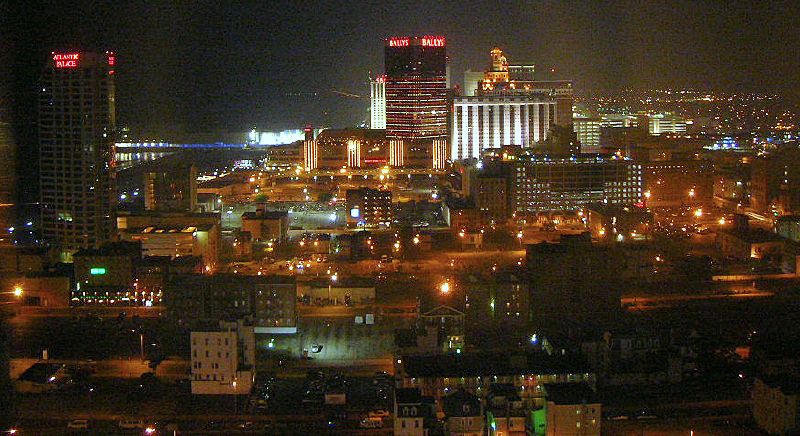The 19th Annual East Coast Gaming Congress opened Wednesday at Borgata in Atlantic City with a panel on internet casinos. Notable take-aways include notes of much less revenue being generated than was expected, the refinement of geo-location tech to make sure gamblers were actually located inside the state’s borders while playing, and the difficulty in getting major banks to process credit cards for legal online gambling – even though they have new merchant codes making it easier for them to do so.
New Jersey entered the online gaming market in November 2013. Casinos were legalized in Atlantic City in 1976. Between the end of 2013 and the year 2014, four of twelve casinos closed. Online gaming has not contributed to the decline, and has added to the bottom line of all the casinos that host gaming sites. Market saturation and competition from neighboring states including Pennsylvania, as well as closing profitable casinos to ensure others survive are reasons usually given by analysts for the loss of the four casinos in the former gambling mecca.
Today we find the $2.4 billion Revel casino unoccupied and without a license after being sold for $82 million in bankruptcy court. The property failed to turn a profit in two years of existence. The new owner, Glenn Straub says the casino will not open this year and that it’s not likely any nightclubs or restaurants will open before the summer rush is over on labor Day.
A protracted fight in the courts to allow sports betting in New Jersey returned to court in March with a three judge federal appeals panel in Philadelphia set to make a decision no earlier than this month. The ruling has not occurred and will likely be appealed regardless of the outcome.
In October Governor Chris Christie signed a bill into law partially repealing the state’s ban on sports betting. Monmouth Park Racetrack was ready to offer a sports book the next week, but opponents, including the NCAA dashed those hopes in court.
On April 27 Christie signed a bill allowing casinos to negotiate simulcast percentage rates – giving more chances for revenue to the 7 casinos in AC not then offering the service.
The biggest wind of change however is a proposal by Meadowlands Racing and Entertainment to team up with Hard Rock International to open a new casino a stone’s throw from Metlife Stadium in East Rutherford. Less than half an hour drive from New York City, proponents see this venue as a pocket in an otherwise saturated market that could bring in hundreds of millions of dollars each year.
Meadowlands track owner, Jeff Gural noted at the gaming conference Thursday, “That market has 14 million people,” he said. “There’s an airport next door. I can bring as many planes as you want from China. I already have the deal; it’s done.”
The proposal includes a tax rate of 55% compared to Atlantic City’s levy of 8% and the proceeds could be shared with “America’s Favorite Playground”. Governor Christie has said he has not seen the proposal but could be behind it if revenues would help the struggling city.
Others have called for gambling to be expanded beyond Atlantic City, but due to a state law, the issue would have to go before voters statewide to amend the constitution. Various polls have shown differing support for the idea.
On Tuesday, New Jersey Democratic Assemblyman Vince Mazzeo told news outlets that a package of five bills designed to help Atlantic City, including a payment-in-lieu-of-taxes plan will get a vote before the end of the Fiscal year on June 30th.
No one can yet predict the final gambling landscape in New Jersey, but one thing is certain; change is in the air and the stakes are high – as they always are in a fight for survival.



